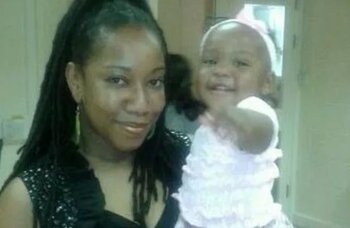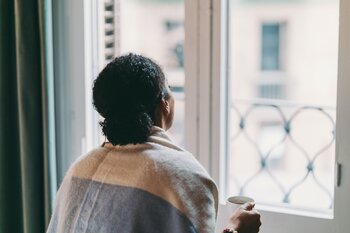BLACK WOMEN who are victims of domestic abuse are less likely to see their perpetrators convicted in court than white women, shocking new figures reveal.
Between 2016 and 2020, 37 police forces across England, Wales and Northern Ireland charged alleged perpetrators in 6.7% of cases where the domestic violence victim was white, and just 5.5% where the victim was black.
Freedom of information requests sent to police forces and the Crown Prosecution Service (CPS), also show that black victims of sexual assaults’ and rape were 1.5 times less likely to see police bring charges against their alleged abuser in comparison to white victims.

However, while the police were less likely to prosecute perpetrators where the victim was black, the figures also showed that black defendants were less likely to be convicted of domestic abuse-related offences (65%, compared to 78% of white defendants) between 2016 and 2020.
The damning figures come almost a year after the tragic disappearance of Sarah Everard in March 2021. The 33-year-old’s kidnap, rape and murder at the hands of a then-serving Metropolitan Police officer sparked outrage across the UK and prompted debate on how best to combat escalating violence against women and girls.
Following the release of the government’s rape review in July last year, it also shone a spotlight on how black women faced even more inequality in their pursuit for justice.

Ngozi Fulani, a director and Independent Domestic Violence Advocate (IDVA) at Sistah Space, told The Voice she wants to finally see change for black women in the criminal justice system almost eight years after the violent murder of Valerie Forde and her baby daugher by her ex-partner.
“We’ve seen that the IOPC found that there were mistakes made with the cases of Bibba Henry and Nicole Smallman, seven years ago it was Valerie Forde and her baby daughter. Nothing has changed.
“It seems like it’s okay for the police to ignore the plight of two black women who have gone missing. The family had to go out and search for them. The fact that the police officers took pictures of their body and put it on WhatsApp or shared it, is such an obvious sign of contempt for black women. Dead or alive,” she said.
“The news reports on violence against women, and they called Sarah Everard’s name as if nobody else has ever died. So this just compounds what we know right across the board in society that black women’s lives don’t matter when it comes to domestic abuse. There is racism in the violence against women and girls sector.”

Ms Fulani and the Sistah Space team, who specialise in supporting women from African and Caribbean backgrounds who have experienced abuse, have led the calls to make specialist training mandatory for police and other government agencies to support the cultural needs of black women and girls affected by abuse.
The Valerie’s Law petition – named after the late Valerie Forde – received over 100,000 signatures after garnering support from the likes of music artist FKA Twigs and motorsporting legend Sir Lewis Hamilton.
MPs such as Dawn Butler, Diane Abbott and David Lammy have all thrown their support behind bringing Valerie’s Law into practice.
Abena Oppong-Asare MP, who raised the importance of the petition in the Commons, told The Voice that she pays tribute to the incredible work that Sistah Space is doing as they await for a Parliamentary debate about the landmark law to be set.
“I am proud to be supporting the campaign to introduce Valerie’s Law – which would introduce mandatory training for the police and other agencies when dealing with domestic abuse against black women and girls,” she said.
“The shocking murder of Valerie Forde shows that the police need to do more to help Black women experiencing domestic abuse – and sadly evidence from Sistah Space shows that many other black women do not trust the police to treat them fairly.
“So far, the Government’s response to this issue has not been good enough. I will continue to push ministers to take action, including during an upcoming parliamentary petition debate on the issue. We will not stop until we achieve these vital reforms.”
To access support for domestic and sexual violence, please visit Sistah Space.
This interview is just one of many great stories and features in the February edition of The Voice. Much of the stories are only found in the paper, not online. Pick up a copy in your local newsagent, or subscribe here.



Comments Form